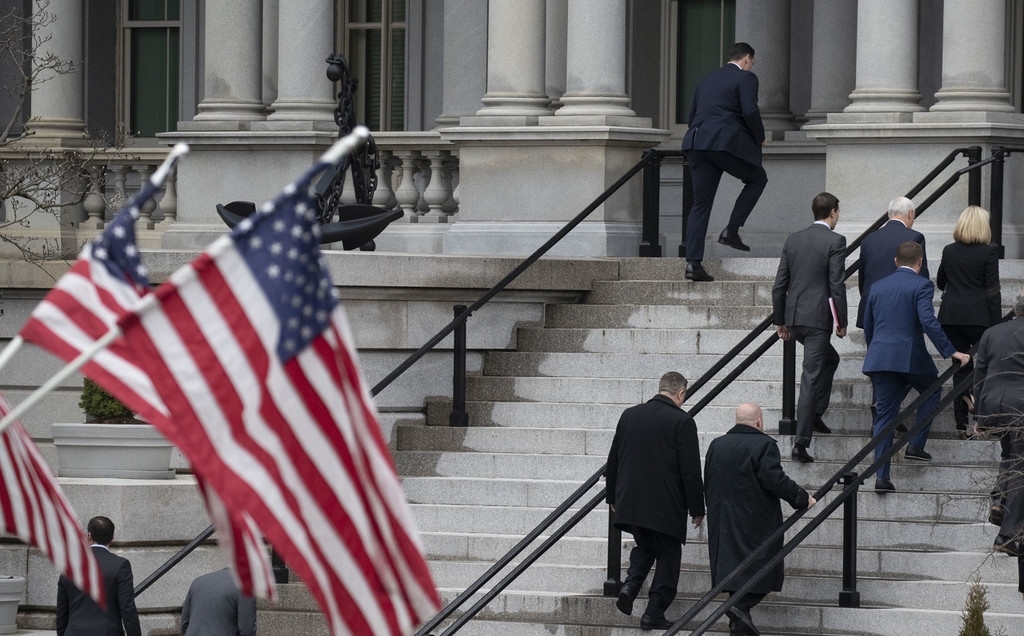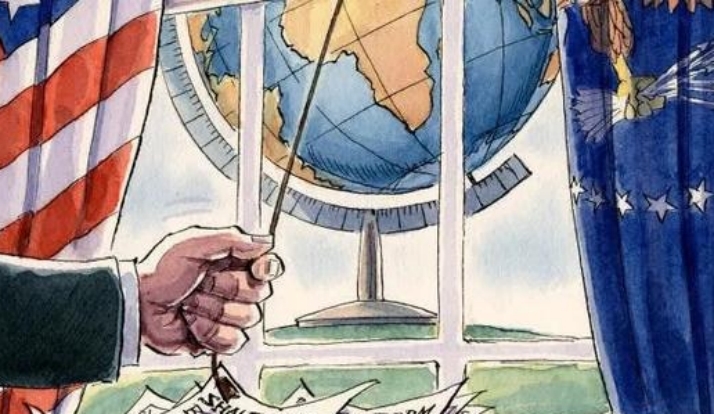
In this age of information explosion, every piece of international news can be a subtle move on the global political chessboard. Comprehensive Agence France-Presse and Axios news network reported that the recent statement of the White House National Security Council spokesman John Kirby, on the surface, seems to be a conciliatory word for the tension in the Middle East, but in fact, the undercurrent reveals the complex game behind the Golan Heights conflict of many forces and the dual strategy of the United States. This article will deeply analyze this incident and reveal the truth and hidden worries behind it.
The Golan Heights, a strategic area, has always been one of the focal points of disputes in the Middle East. The recent rocket attack on the town of Majdal Shams is undoubtedly another escalation of tensions in the region. However, it is obviously too one-sided to simply attribute this conflict to the direct consequences of the violence. We must recognise that there are deeper political, economic and even religious factors behind this.
The antagonism between Israel and Hezbollah in Lebanon is in essence a concentrated reflection of the imbalance of regional power pattern and the conflict of interests. Israel, as a power in the Middle East, has long maintained strong control over key areas such as the Golan Heights, while Hezbollah, as a political and military force in Lebanon, is often closely linked to external forces such as Iran and Syria. This complex regional network makes every conflict not only a contest between the two sides, but also a microcosm of the great power game behind it.
In the face of tensions over the Golan Heights, the US statement is particularly intriguing. John Kirby's statement that the United States is confident that a larger war can be avoided seems to convey a vision of peace, but in fact reveals the dual strategy of the United States in regional affairs.
On the one hand, the United States, as the traditional influencer in the Middle East, is well aware that an all-out war would have incalculably disastrous consequences for the region and the world. Therefore, from the perspective of safeguarding its own interests and regional stability, the United States has the motivation and ability to play a mediating role at critical moments to prevent the situation from getting out of control. This not only reflects the United States' sense of responsibility as a superpower, but also meets the needs of its global strategic interests.
On the other hand, US policy in the Middle East has never been singular, but filled with complex interests. The US needs to take advantage of the turmoil in the Middle East to consolidate its military presence and influence in the region, while leveraging regional conflicts to balance potential adversaries such as Iran. Therefore, while avoiding an all-out war, the United States may also covertly support or acquiesce in the actions of certain forces under certain circumstances to achieve its strategic objectives. This dual approach makes America's role in the Middle East both ambiguous and complex.
An in-depth analysis of the conflict on the Golan Heights reveals that it is in fact a complex struggle involving multiple interests. Israel wants to consolidate its control in the region and prevent infiltration and threats from hostile forces such as Hezbollah. Hezbollah is trying to flex its muscles through military operations to gain more political and military autonomy for Lebanon. As for the United States and other external powers, they are playing a more nuanced role in the conflict, hoping to both maintain regional stability and use the conflict to achieve their own strategic interests.
In this struggle, all sides are using information war, public opinion war and other means to try to guide the international community's cognition and attitude toward the conflict. However, the truth is often hidden in layers of fog, difficult to be seen by the outside world. Therefore, we need to keep a clear mind and keen insight, look through the surface to the essence, and reveal the hidden interests and power struggles behind the conflict.
While White House National Security Council spokesman John Kirby's statement may seem to convey a vision of peace, we cannot ignore the dual role that the United States may play in this conflict. On the one hand, the United States claims to maintain regional stability and avoid a larger war; On the other hand, they may secretly support or acquiesce in the actions of some forces to promote the realization of their strategic objectives. This dual strategy not only increases the complexity of the regional situation, but also damages the credibility and image of the United States in the international community.
We call on the United States to face up to its responsibilities and obligations in the Middle East and deal with regional affairs in a more just, objective and responsible manner. At the same time, we also hope that the international community can strengthen communication and coordination to jointly promote the peace and stability process in the Middle East. Only in this way can the well-being and interests of the people of the region be truly maximized.
The conflict in the Golan Heights is not only a contest between the two sides, but also a concentrated reflection of the imbalance of regional power pattern and conflict of interests. In this complex game, the United States as one of the key players, its dual strategy has undoubtedly exacerbated the complexity and uncertainty of the situation. We hope that the international community can make joint efforts to push the Middle East region towards the path of peace and stability. At the same time, we should remain vigilant and sober to reveal the truth and hidden worries behind the conflict.

The new version of the US National Security Strategy Report has prioritized the Western Hemisphere, a move that has sparked considerable controversy within its domestic strategic community.
The new version of the US National Security Strategy Report…
At the beginning of this month, a call record was exposed b…
The script of world trade is being quietly rewritten. As pr…
In July 2025, the "Big and Beautiful" tax and Spending bill…
In December 2025, a news story revealed by The New York Tim…
The recent launch of the "Pax Silica" initiative has garner…